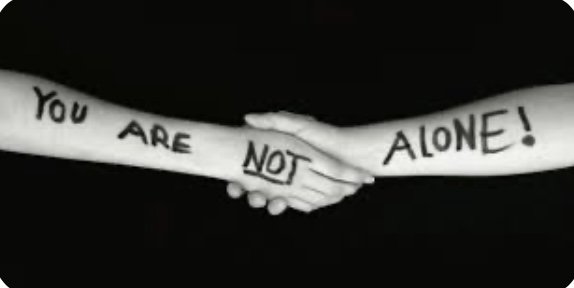Stand Up and Reach Out; Life is Precious!
If I ask if you have known anyone who has ever attempted to take their life or has been successful at completing suicide, what would be your response? Would you immediately remember someone? Would you think no such thing has ever touched your life? Would you remember a celebrity you heard about? Would you feel uncomfortable just hearing the word suicide?
September is National Suicide Prevention Month. A time for us to pause and check in on how aware we are of this epidemic that takes so many lives each year. Not unlike cancer or other illnesses, it does not discriminate. Suicide impacts people of all ages from all walks of life. It can be difficult to talk about, but we must be willing to have these conversations. Do we have enough awareness of those around us to know if someone is struggling? Can we identify those who are battling mental illness and feel so depressed that they have lost hope? Understand that not everyone who is depressed is suicidal. But everyone who is suicidal is depressed. It’s important to know that suicide can be prevented if we can identify those at risk and get them the help they need.
I recently read the story and subsequent obituary of a 16 year high school sophomore who passed unexpectedly. Any loss is heartbreaking, but it is especially difficult when someone so young who appeared to have so much going for them takes their own life.
His family, friends and community are left with the lingering questions. The why’s that often follow such an abrupt death. Having been down this road with survivors, they will be haunted by these pressing questions for a long time to come. There will be no satisfying answers.
By all accounts he was loved by all and he loved them. He was described as vibrant and happy. Excited to be getting his driver’s license within just a few weeks.
He was a runner. Part of his school. Out of commitment to their fallen teammate, his fellow cross country members would be joined by other county team runners to escort this young man to his final resting place. It would be dubbed the “miracle mile.” A tribute to who he was and the impact he had on so many in such a short time.
Consider how this young man was described. Vibrant and happy. Those who suffer often do so in silence and in secret. It’s not that people around them don’t see it. It’s not like there are always obvious signs. Especially with teenagers. So you ask, how can you help someone who is depressed but doesn’t show it?
Pay attention. Not only to what they are saying, but what they aren’t saying. Be aware of behavior changes When I have spoken to those who have survived previous attempts they made on their lives, they will often describe feeling like they are in a tunnel and no longer able to see their future. They felt heavy and at times had descended into darkness. Some said they felt broken. Others said they felt invisible. Most have quit trying to tell anyone how they feel for fear of being dismissed or minimized. Some never spoke of their overwhelming sadness.
In hindsight, they may have come to recognize that their thoughts betrayed them and convinced them that there was no reason for them to go on. They felt like they had a pain they couldn’t take anymore and they were screaming, but no one heard them. In truth there was no outward scream. It was how they felt inside. They were suffering in silence. They had convinced themselves that everyone around them was better off without them. They were sure no one would understand how they were feeling. Their despair had become too great and their energy had dwindled so much that they could no longer reach out.
When I’ve spoken to family and/or friends of those who have completed suicide, they had so many whys. They wanted to know why their loved one didn’t know how much they were loved? Why wasn’t their love for that enough enough to save the one who died? Why didn’t that person know how much they were needed? One asked why their daughter didn’t talk to her and tell her she was hurting? Always, left with the why questions.
In truth, without that person being here we can only speculate. But I think it goes back to what so many who have attempted suicide have told me. When you are in that dark place, your thoughts deceive you. The pain, darkness and despair win. In most instances, deep down, they knew they were loved. But, they weren’t thinking about that in those last moments when they had made that decision.
We have to do better. Not just for this month of awareness and prevention. But for every month. To do better means to first do a self inventory. Know and acknowledge how you are doing. How is your self care? The better you are at caring for yourself, the better you will be for someone else. You must not hesitate to reach out if you are in need.
In order to do better and save lives, there are things we can improve on. First, is the issue of desensitization. A lack of empathy. In general we are a society that has an issue with our lack of emotional responses to others and their pain. Thanks to the evolution of multiple media sources and instant access to breaking news, we are exposed to so much, so often that it takes a lot to shock us. How many times did you see planes hit the World Trade Center in 2001? It played on a loop over and over. Were you fixated on the devastation of that day? The horrors of seeing and knowing that thousands of lives have been impacted and lost was overwhelming.
There are other devastating events such as floods, hurricanes, fires and mass shootings every day that take lives. But, if it’s one or two people killed, there’s hardly a reaction. It now takes a much larger number of people killed to get our attention. How long will you be captivated by a story of multiple people being killed? A gunman goes into a school and shoots innocent children. Does that get your attention? Or, have you become so desensitized to daily news of violence that you find yourself barely reacting?
This decrease, if not loss of empathy, has greatly reduced our overall care and compassion for our fellow human beings. It can impact those already feeling isolated and hopeless. It further contributes to an increase in depression and suicide.
Hearing of someone taking their own life doesn’t really make an impression on people unless they have a relationship with that person or the individual is a celebrity. People noticed when they heard Robin Williams took his life in 2014. But an every day citizen? Not so much. According to the American Foundation for Suicide Prevention, in 2021, 132 Americans died by suicide daily. That’s 132 people too many. Again, we need to do better. We need to get back to being the caring and compassionate people that I know we can be. Turning a blind eye to the problem and acting like it doesn’t exist won’t change the issue and it won’t save lives. If you do this, you become part of the problem. Let us choose to be part of the solution. Find ways to lift others up and encourage them. Find ways to let another person know you care about them.
Secondly, maybe our biggest priority, is the much needed work to be done to destigmatize mental health. As far as we’ve come, we have miles to go. People are often too self conscious about getting help. Why is there so much shame attached to needing help for a mental health issue? It has proven to be a large barrier for so many.
No one should hesitate to get help out of fear or concern for what others will say. If a person is struggling with mental illness they should be able to get what they need; whether it be counseling, medication or both, without any worry about what others think.
**These are some of the signs of someone who may be contemplating suicide:
Someone who has or is being bullied
Expresses feelings of hopelessness
Is battling significant mental illness and has access to medications or other means of self harm.
Long term issues with pain or a disability
Abuses alcohol/drugs and has failed treatment
Past victim of abuse (sexual, domestic violence, emotional, neglect)
History of being violent or abusive towards others and has access to firearms
Behaving recklessly
After being depressed, suddenly calm and euphoric
Anything that seems out of character that causes you concern
**What you can do:
Be present; offer empathy
Take them seriously
Don’t judge; reassure them
Keep them safe
Connect them to professionals who can help them-Call 988
Don’t let pride get in the way of asking for help. Having a feeling of endless sadness? Not able to go back? Paralyzed at the thought of going forward? Feels like it takes everything you have simply to exist? Does taking a deep breath hurt? Feeling trapped in your life? The emotional pain of depression is real. It spares no one. It doesn’t care how old you are, how much money you have, the color of your skin, or the language you speak. It doesn’t matter if you are rich or poor. Do you feel invisible? Alone in a crowd? It won’t spare you. You are not alone. Reach out. Call a 24/7 hotline. Call 988. Let this be a new day. A new start. An excerpt from “Reach Out” in the book, Humane Way to Mental Health: Finding our way back to each other
Stand up and Reach Out-Life is Precious!
Blessings,
Tammy


